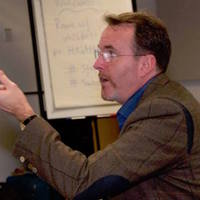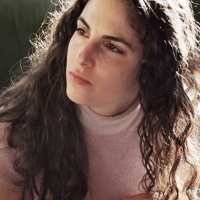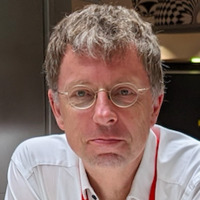Papers by Andris Hiršs

Studies in East European Thought, 2024
Influenced by the intellectual historical approach, scholars researching the history of Latvian p... more Influenced by the intellectual historical approach, scholars researching the history of Latvian philosophical thought have turned their attention to analyzing archival materials. Texts such as letters and diaries have become a research focus. While this tendency enhances the exploration of the history of philosophy, it also creates new challenges. As the complexity of the historical narrative in philosophy intensifies, it becomes increasingly difficult to understand these processes in a broader context. To alleviate the issue of fragmentation, one possible solution is to explore local theories. Latvian theory delineates a net of individuals who engage in interactions with one another, thereby developing the flow of ideas. In examining the influence of personalism within the intellectual space of Latvia from the end of the nineteenth to the first third of the twentieth century, this article reveals two philosophemes of Latvian theory: substantiality and panentheism.
Culture Crossroads
This article is artists’ statement. It deals with several theoretical questions surrounding the a... more This article is artists’ statement. It deals with several theoretical questions surrounding the art performance Mehāniskais Veidenbaums (“Mechanical Veiden- baums”, 2017). The performance was based on E. Veidenbaums’ (1867–1892) “Discourse on Mechanics” (Apcerējumi iz mekānikas, 1894). An introductory remark about relations between research and art is given in the first part of the article. The second part argues about historical fantasy and its application in historical and philosophical research. The final part describes historical details used in the performance.

Kopsavilkums Rakstā tiek aplūkota Eduarda Veidenbauma darba par mehāniku saistība ar viņa pārējo ... more Kopsavilkums Rakstā tiek aplūkota Eduarda Veidenbauma darba par mehāniku saistība ar viņa pārējo radošo darbību. Šī problemātika ir saistīta ar plašāku jautājumu par Veidenbauma ideju savstarpēju iekļaušanos vienotā uzskatu sistēmā. Veidenbauma radošā darbība ir fragmentāra un aptver vairākas jomas-no dzejas līdz dabaszinātnēm, jurisprudencei un sociālpolitiskiem pārspriedumiem. Ja idejas nav saistītas, tad visi šie darbi ir jāaplūko neatkarīgi. Ja ir saistītas, problemātiska kļūst to apvienošana vienā sistēmā. Raksta autori aplūko abus scenārijus. Raksta centrā ir Veidenbauma iespējamās filozofijas neeksplicētās nostādnes. Ja šīs nostādnes tiek adekvāti izgaismotas, Veidenbauma uzskatus ir iespējams tematizēt ne tikai vēsturiskā, bet arī ideju vēstures vai plašāku humanitāro zinātņu diskusiju kontekstā. Raksta autori savās sadaļās izvērš trīs skatījumus uz Veidenbauma darbību. Pirmais attiecas uz Veidenbauma likteņa un gribas problemātiku. Vai optimistiskie Veidenbauma raksti ir sasaistāmi ar pesimistisko dzeju? Risinājums, kas ļautu apvienot Veidenbauma radošo darbību vienā sistēmā, tiek meklēts stojas un Šopenhauera filozofijas nostādnēs, nošķirot divas likteņa izpratnes-liktenis kā stingra noteiktība dabā un kā indivīda dzīves plāns. Otrā sadaļa, akcentējot vēstures pētniecības pieeju problemātiku, pievēršas Veidenbauma darbības vēsturiskajam aspektam, aplūkojot dzejnieka dzīves apstākļus Tērbatā. Balstoties Veidenbauma tekstos un laikabiedru atmiņās, var parādīt, ka Veidenbaums savos uzskatos nav bijis koherents. Dzejnieka pārdomās iezīmējas vismaz divi savstarpēji pretrunīgi motīvi, kuri izpaužas kā pesimistiski skaudrais pasaules redzējums dzejā un cerība uz racionāli iekārtotu, mehanizētu nākotnes sabiedrību. Pēdējā sadaļa aplūko Veidenbauma rakstu par mehāniku un politisko darbu saistību. Ja šī saistība tiek pierādīta, var runāt par īpaša veida Veidenbauma humānismu. Šo tēzi izvēršot plašāk, Veidenbauma uzskatus var aplūkot arī 20. gadsimta humānisma un posthumānisma kontekstā.
This article is artists' statement. It deals with several theoretical questions surrounding the a... more This article is artists' statement. It deals with several theoretical questions surrounding the art performance Mehāniskais Veidenbaums ("Mechanical Veidenbaums", 2017). The performance was based on E. Veidenbaums' (1867-1892) "Discourse on Mechanics" (Apcerējumi iz mekānikas, 1894). An introductory remark about relations between research and art is given in the first part of the article. The second part argues about historical fantasy and its application in historical and philosophical research. The final part describes historical details used in the performance.
Jēkabs Osis (1860-1920) is the first academically educated Latvian philosopher and one of the fou... more Jēkabs Osis (1860-1920) is the first academically educated Latvian philosopher and one of the founders of the University of Latvia. However, Osis never worked there. His academic life was closely tied with the University of Tartu, where he studied theology, philosophy and eventually became a professor of philosophy. Inspired by his mentor, professor of philosophy, Gustav Teichmüller, Osis turned his attention to the works of Leibniz, most notably those about the nature of substance. Osis aspired to unify the understanding of the notion of substance with the necessity to substantiate the immortality of individual entities. Osis criticized the philosophy of Leibniz and verified a new understanding of substance that is found in the works of Teichmüller.
This article aims to investigate tendencies in the historiography of Latvian philosophy in the pa... more This article aims to investigate tendencies in the historiography of Latvian philosophy in the past
three decades. This article focuses on the history of ideas and intellectual history as two different approaches
in the field of the history of philosophy. After the dissolution of the Soviet Union, the term “history of ideas”
gained popularity in the Latvian cultural discourse. Historians of philosophy were highlighting the close ties
between Western and Latvian cultures. However, during the last decade, the approach of intellectual history
has been gaining popularity among the Latvian historians of philosophy.
Thesis Chapters by Andris Hiršs











Uploads
Papers by Andris Hiršs
three decades. This article focuses on the history of ideas and intellectual history as two different approaches
in the field of the history of philosophy. After the dissolution of the Soviet Union, the term “history of ideas”
gained popularity in the Latvian cultural discourse. Historians of philosophy were highlighting the close ties
between Western and Latvian cultures. However, during the last decade, the approach of intellectual history
has been gaining popularity among the Latvian historians of philosophy.
Thesis Chapters by Andris Hiršs
three decades. This article focuses on the history of ideas and intellectual history as two different approaches
in the field of the history of philosophy. After the dissolution of the Soviet Union, the term “history of ideas”
gained popularity in the Latvian cultural discourse. Historians of philosophy were highlighting the close ties
between Western and Latvian cultures. However, during the last decade, the approach of intellectual history
has been gaining popularity among the Latvian historians of philosophy.